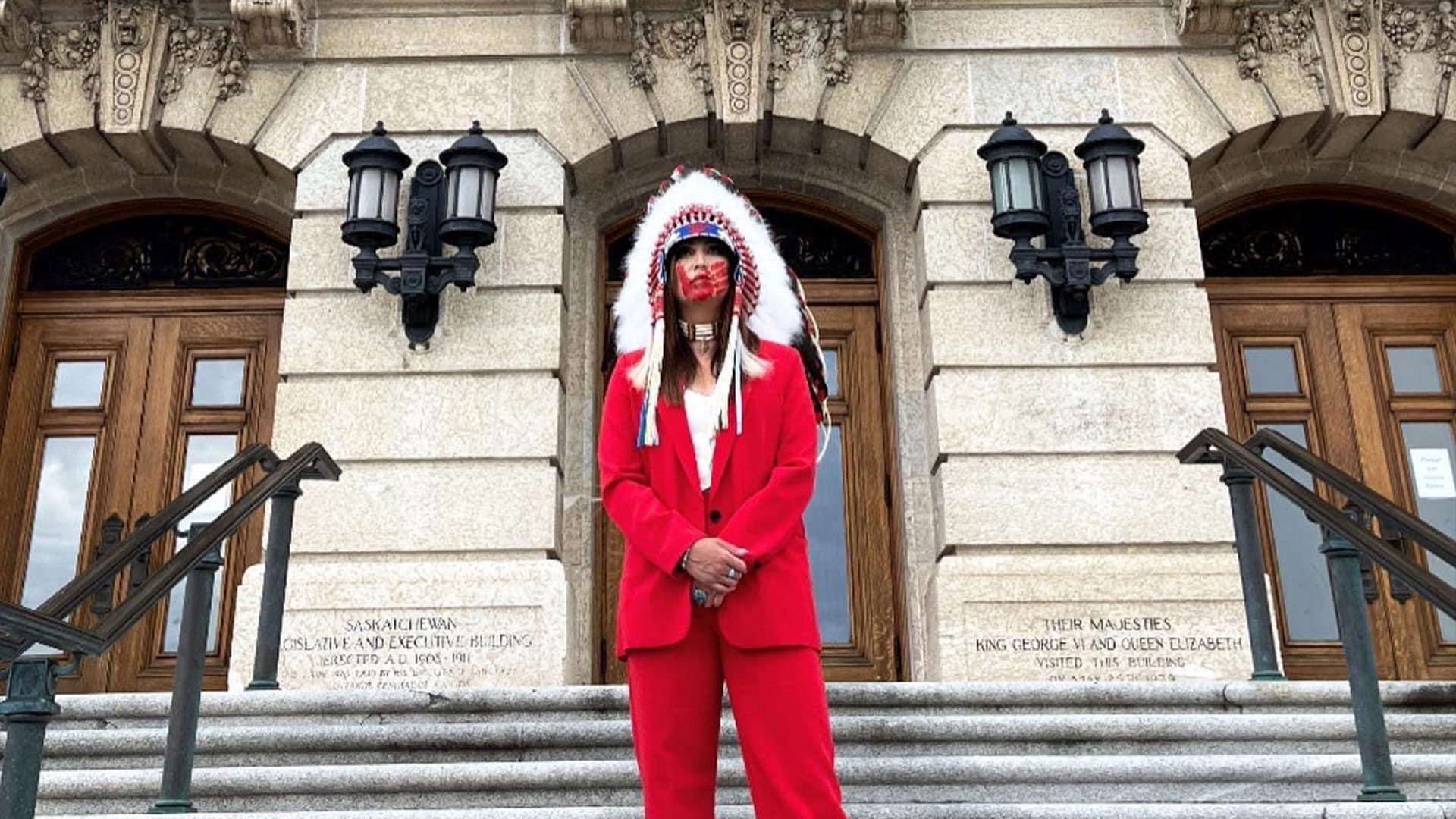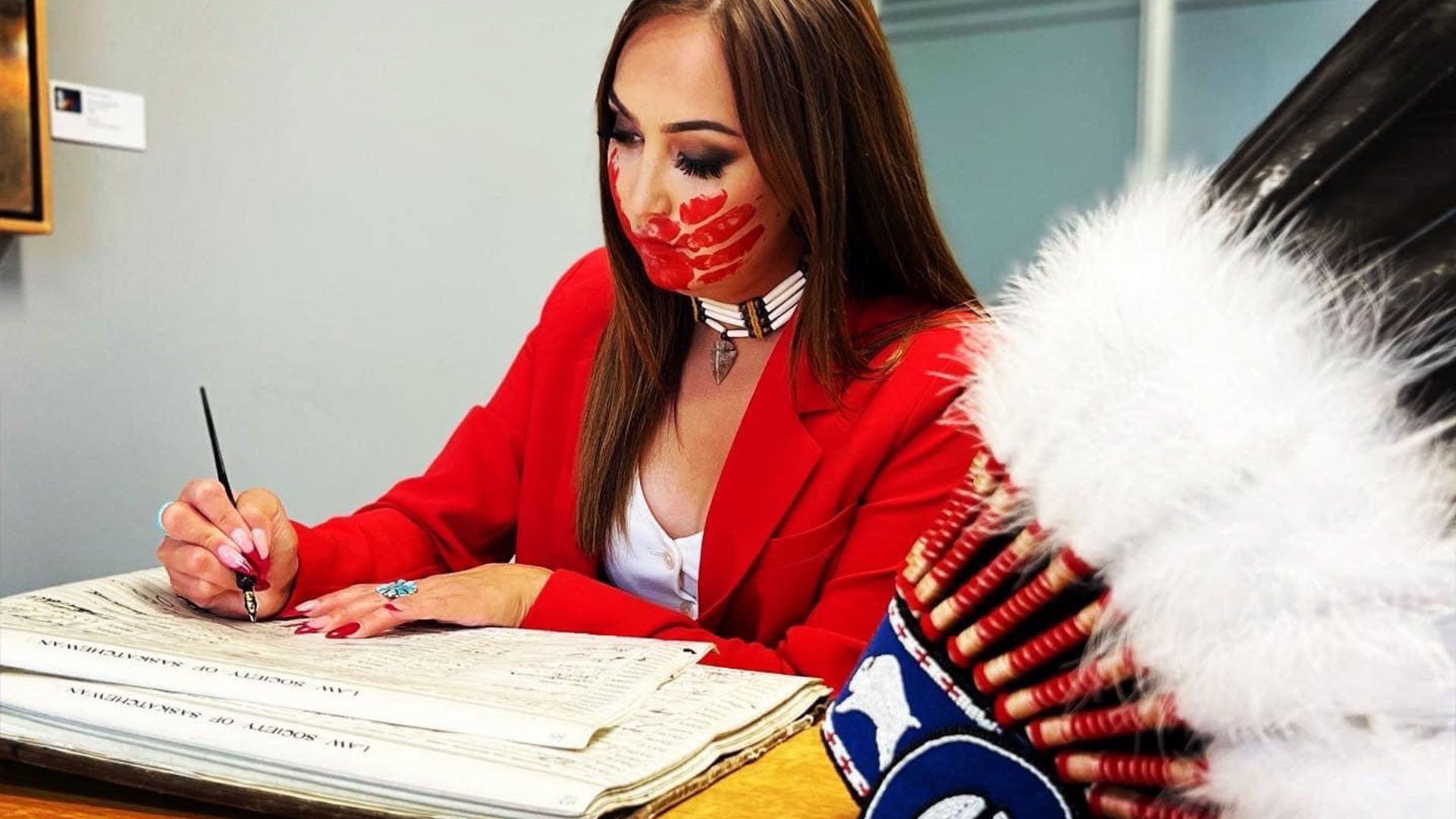As the fourth anniversary of the release of the final report from the National Inquiry into Missing and Murdered Indigenous Women and Girls approaches, Aly Bear believes the crisis has only deepened.
Bear, who is 3rd vice chief of the Federation of Sovereign Indigenous Nations in Saskatchewan (FSIN), recently had the opportunity to bring up the issue with Prime Minister Justin Trudeau at an event in Fort Qu’Appelle, Sask.
On the latest episode of Face to Face, Bear says she wanted Trudeau to know that violence against Indigenous women, girls, and Two-Spirit is a “crisis” and “a state of emergency.”
“We need to continue to discuss this ongoing genocide here in Canada,” says Bear. “The colonial violence has now turned into lateral violence. The patriarchy, the misogyny, all of that has all become deeply embedded and entrenched within society but our communities, as well.
“When you have wider society looking at Indigenous women, like they are, unfortunately, disposable and less than, then we also have our own people starting to view Indigenous women the same way and so we have a lot of situations that have to be addressed, internally at home when it comes to domestic violence situations and protecting our women and children.”

At the event, Bear said Trudeau admitted there is more work to do and committed to doing more.
“The inquiry is coming on its fourth year anniversary and we continue to see things getting worse,” says Bear. “There is a complete lack of implementation on the 231 calls for justice from that inquiry and it is seen in the statistics. It is seen in the amount of Indigenous peoples and women and Two-Spirited that continue to face violence and harm.”
In early May, a motion brought forward by NDP MP Leah Gazan (Winnipeg Centre), calling for a national state of emergency to address violence against Indigenous women and girls. The motion also urged the federal government to put in place what is called a “Red Dress Alert” similar to an amber alert.
The motion passed unanimously.
Bear, who has been critical of Saskatchewan’s amber alert system and says it is “discriminatory” and praised Gazan for the motion and work in the House of Commons.
According to Bear, non-Indigenous children get amber alerts but Indigenous children don’t seem to ever meet the criteria.
First elected in 2021, Bear became just the third woman and the youngest person, ever elected to the FSIN executive, which represent 74 First Nations in Saskatchewan.
She is also the first person from Whitecap Dakota First Nation to become a lawyer.

Bear says it wasn’t easy to navigate the colonial education system and says as a single mother of two, she faced a lot of racism and barriers.
When she graduated, she signed the roll of law in a red suit with a red handprint on her face to honour MMIWG2S.
Bear encourages other Indigenous peoples to become lawyers.
“When I was in law school, that’s when the Stanley trial happened and Gerald Stanley was acquitted for murdering Colten Boushie and at that time, a lot of the Indigenous students wanted to quit law school,” says Bear.
“’Why are we here? The justice system doesn’t give our people any justice.’ But that was the whole purpose, that’s exactly why we’re here, to try to change that, to try to advocate for justice for our people who aren’t seeing any justice.
“To understand why it is that this colonial justice system continues to harm our people.”
Bear says she has a dream to set up a post-secondary scholarship for single mothers.
She also encourages more Indigenous women to run for political office.
A message Bear says she always like to share is “we’re here, we’ve always been here and we’re growing and healing and we’re coming for everything they said we couldn’t have.”













